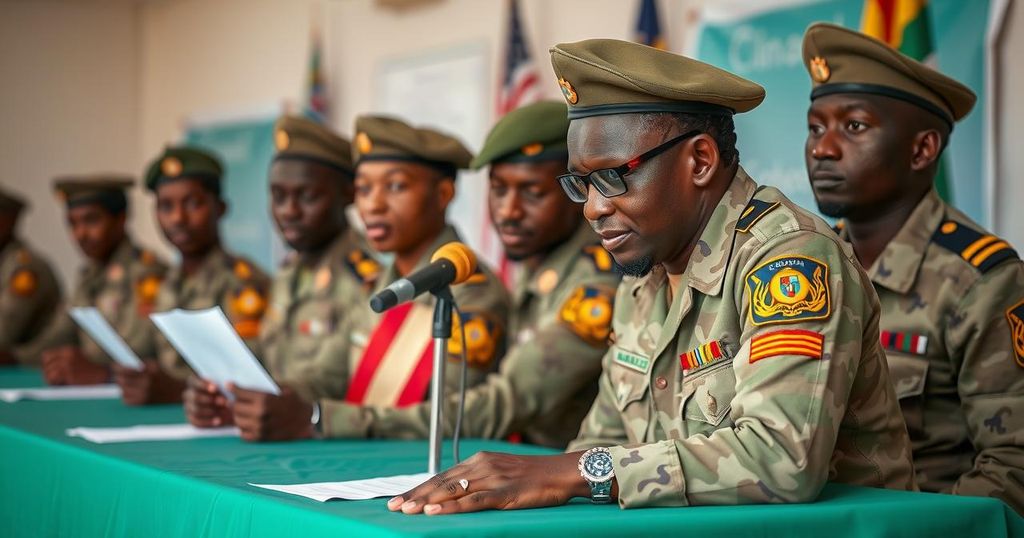Chad votes for legislative, provincial, and local elections after three years of military rule, amidst a boycott by opposition candidates accusing the government of electoral fraud. The elections benefit the ruling party, presenting significant concerns about the legitimacy of the vote and ongoing violence in the region.
Chad is holding legislative, provincial, and local elections after a three-year period of military rule on Sunday. The process is marred by a boycott from opposition candidates, who allege the previous presidential election was fraudulent. This absence of opposition candidates predominantly benefits those aligned with the ruling government, specifically Marshal Mahamat Idriss Itno, who rose to power following a military takeover in 2021 and was elected president in a disputed election last year.
Opposition figure Succes Masra urged voters to stay home, emphasizing that the electoral system is deeply flawed and manipulative, stating, “It is better to stay at home.” Furthermore, the Democratic Party of the Chadian People reported that over a thousand ballots had gone missing, raising alarms about potential electoral fraud. Polling stations will be operational from 6 a.m. to 6 p.m. local time, with approximately eight million registered voters participating under the scrutiny of foreign observers and political representatives.
This election occurs within the context of ongoing violence from Boko Haram and deteriorating relations with France, which had previously supported Chad’s military. Itno’s administration has claimed that the elections represent a significant move toward a return to democratic governance. Historically, Chad has not conducted legislative elections since 2011, and this delay has been attributed to various challenges, including jihadist threats and public health crises. The opposition continues to voice concerns over autocratic governance and the suppression of dissent, underscored by tragic events from past protests.
Chad has experienced a tumultuous political landscape, especially following the 2021 death of long-time President Idriss Deby Itno, leading to his son Mahamat Idriss Itno assuming power through military means. This transition has been characterized by allegations of electoral fraud, oppression of political opposition, and worsening socio-economic conditions. The country’s recent history of violence, primarily influenced by insurgent groups, further complicates the current electoral climate. The international community is closely monitoring these elections to assess the prospects for genuine democratic reform in Chad.
In conclusion, the elections in Chad symbolize a critical juncture in its political transition following years of military rule. However, the boycott by opposition parties highlights significant issues surrounding electoral integrity and the concentration of power within the governing regime. The resulting atmosphere of skepticism and fear raised by the opposition’s claims of electoral manipulation suggests that the path toward genuine democracy remains fraught with challenges and uncertainties in Chad.
Original Source: www.france24.com






